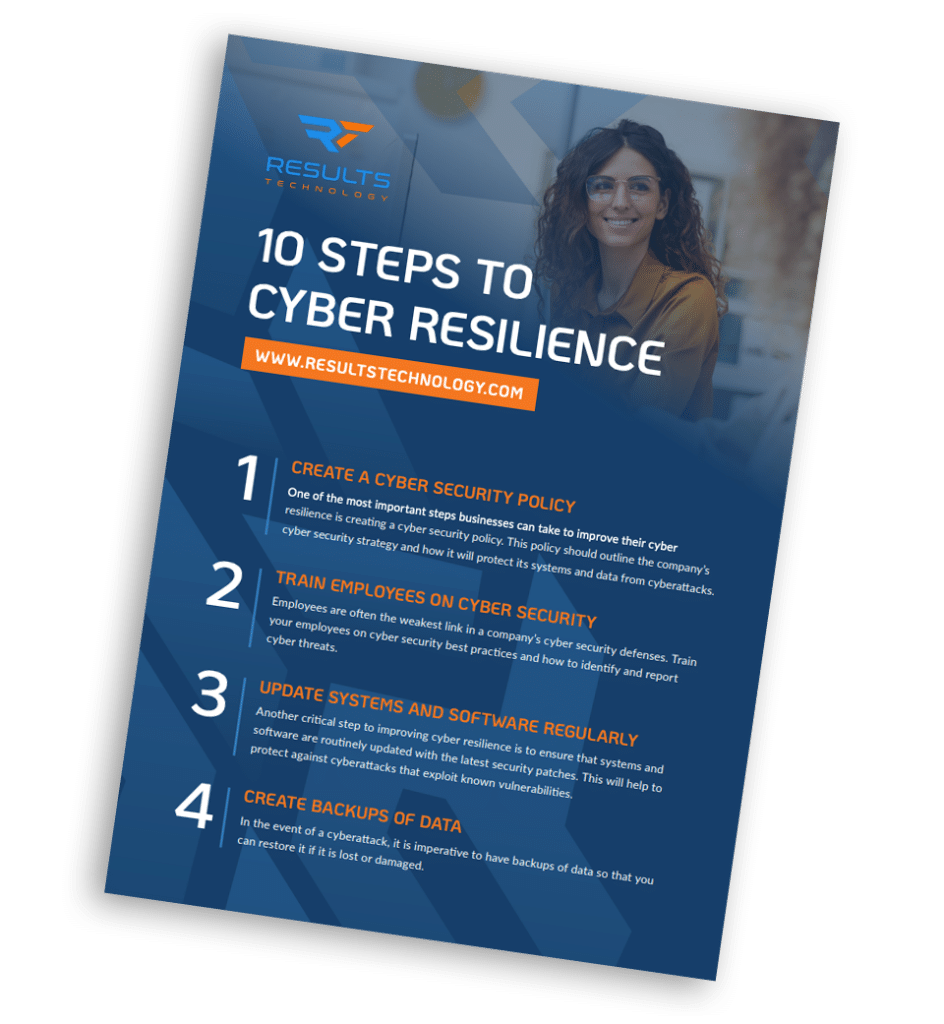Did you know that 43% of cyberattacks target small businesses, yet only 14% are adequately prepared to defend themselves? For small business owners in St. Louis, juggling tight budgets, limited resources, and daily responsibilities is already challenging enough. Add cybercriminals into the mix, and the stakes of cybersecurity for small businesses get even higher.
From phishing scams to ransomware attacks, small businesses are often prime targets because they lack the advanced security defenses of large corporations. The impact of a breach? Devastating. A single cyberattack costs a small business an average of $200,000, forcing many to shut their doors for good.
The FCC claims that the “theft of digital information has become the most commonly reported fraud, surpassing physical theft.”
But here’s the good news: there are steps every St. Louis small business can take to protect against these threats, and they don’t have to break the bank.
Why Are Small Businesses in St. Louis a Target?
Unfortunately, cybercriminals know that smaller organizations often lack dedicated cybersecurity resources. Tight budgets mean outdated software, weak security protocols, and under-trained teams, creating vulnerabilities just waiting to be exploited.
Additionally, being part of a tight-knit community means that a cyberattack doesn’t only disrupt your operations—it damages your brand’s reputation and customer trust, which can take years to rebuild.
Proactive preparation is essential to avoid becoming just another statistic. Here are the most common cyber disasters threatening your business:
Phishing Attacks
Fraudulent emails that appear legitimate trick employees into clicking malicious links or revealing sensitive passwords, giving hackers access to your systems.
Ransomware
Cybercriminals lock you out of your computer systems and demand payment—sometimes tens of thousands of dollars—before unlocking them.
Data Breaches
Unauthorized access to your business or customer information can lead to lawsuits, heavy fines, and a loss of trust in your brand.
Malware
Malicious software can infiltrate your computer systems, corrupt files, and potentially expose confidential business data.
Cybersecurity Action Plan for St. Louis Businesses
Building strong cybersecurity for small businesses doesn’t require a huge investment. Here’s a step-by-step action plan tailored to businesses in St. Louis to prevent cyber threats and mitigate risks.
1. Strengthen Your Cybersecurity Defenses
Start with the basics. Every business should have these key protective measures in place:
- Firewalls to block unauthorized access to your network.
- Antivirus and anti-malware software to protect systems against cyber threats.
- Strong passwords for all devices and accounts—updated regularly.
- Regularly update your software to patch security flaws.
These simple actions can drastically reduce vulnerabilities.
2. Train Your Employees
While not foolproof, an antivirus program doesn’t forget to log out of a public computer or share private information through an email. Humans make mistakes, and without training, they’re much more susceptible to cyberattacks.
Protect your business by ensuring your team knows how to recognize and avoid threats.
- Teach employees to spot phishing attempts and avoid clicking suspicious links.
- Enforce safe practices, like verifying email links and attachments.
- Hold quarterly cybersecurity training sessions to stay ahead of new threats.
3. Back Up Data Regularly
Could your business keep going if you went into work one day and no longer had access to a single customer phone number, email address, order history, or financial records? Regular data backup gives you a safety net should the worst happen.
- Keep a backup of your critical data on an external hard drive or in the cloud.
- Automate data backups daily.
- Store backups securely, either in the cloud or offsite storage.
- Test your backups regularly to ensure they function properly.
- Backups should be frequent and automatic—saving you time and hassle during recovery from an attack.
By creating redundancies, you can recover faster after a potential attack.
4. Evaluate Vendors and Third-Party Partners
Your network is only as strong as the security practices of those you work with. Reduce third-party risks by:
- Vetting the cybersecurity practices of vendors before signing contracts.
- Requiring vendors to follow specific security protocols.
- Limiting vendor access to only what’s necessary for their work.
Hackers often exploit weak links in supply chains, so don’t leave anything to chance.
5. Partner with Cybersecurity Experts
Cyberattacks evolve rapidly, and defending against them requires specialized expertise. Consider partnering with a local St. Louis firm or cybersecurity provider to:
- Conduct regular risk assessments.
- Create a customized security plan tailored to your business needs.
- Provide 24/7 monitoring and support for peace of mind.
This investment pays for itself by preventing the financial and operational devastation a breach can cause.
Why Cybersecurity for Small Businesses Should Be Non-Negotiable
At its core, cybersecurity isn’t just about avoiding attacks; it’s about protecting everything you’ve built. From safeguarding customer trust to ensuring operational continuity, a strong cybersecurity strategy is essential to keeping your business secure and resilient.
Every business—no matter its size—has an obligation to create a culture of cybersecurity for small businesses to maintain trust with its customers and stakeholders.
If you’d like help knowing where your business can start, schedule a risk assessment with RESULTS Technology! This will give you a good starting point for building a cybersecurity strategy and keeping your business safe from threats.


